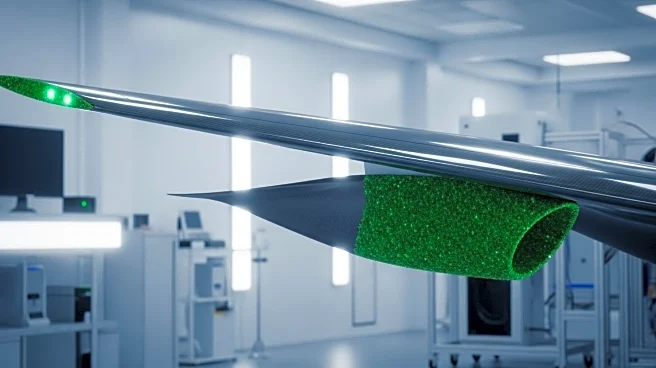What's Happening?
A research consortium led by the Technical University of Munich has developed a method to produce carbon fibers from renewable microalgae, eliminating the need for petroleum-based materials. This innovation, part of the GreenCarbon project, aims to create sustainable carbon fibers for use in various industries, including aerospace, automotive, and wind power. The consortium includes the Fraunhofer Institute for Interfacial Engineering and Biotechnology IGB, SGL Carbon, and Airbus. The process involves extracting oils from microalgae, which bind CO2 through photosynthesis, and converting them into acrylonitrile, a key component of carbon fibers. The project is now focused on scaling up the process for industrial applications.
Why It's Important?
The development of carbon fibers from microalgae represents a significant advancement in sustainable materials, potentially reducing the environmental impact of industries reliant on petroleum-based products. Carbon fibers are crucial for the low-carbon energy transition, offering lightweight and resilient materials for various applications. The use of renewable sources for carbon fiber production could lead to substantial reductions in CO2 emissions, as demonstrated by life-cycle assessments conducted by Airbus and the Japan Carbon Fiber Manufacturers Association. This innovation could transform industries by providing environmentally friendly alternatives to traditional materials.
What's Next?
The GreenCarbon project aims to optimize the technology and expand its use in industrial applications. Airbus has already conducted test flights with helicopters made from these sustainable carbon fibers, indicating potential for broader adoption in aviation. The consortium plans to explore further applications and possibly replace petroleum-based materials in other polymers, contributing to a more sustainable chemical industry.












